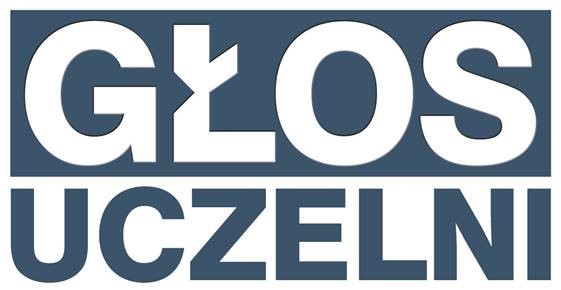
Research papers of the month – April
We present the highest-score research papers of April 2021.
Marta Skiba, Maria Mrówczyńska, Małgorzata Sztubecka, Anna Bazan-Krzywoszańska, Jan K. Kazak, Agnieszka Leśniak, Filip Janowiec
Aleksandra Pawlak, Joanna Bajzert, Katarzyna Bugiel, Beatriz Hernandez Suarez, Kutkowska Justyna, Andrzej Rapak, Wojciech Hildebrand, Bożena Obmińska-Mrukowicz, Raimundo Freire, Veronique A. J. Smits
Probability estimation of the city's energy efficiency improvement as a result of using the phase change materials in heating networks
Marta Skiba, Maria Mrówczyńska, Małgorzata Sztubecka, Anna Bazan-Krzywoszańska, Jan K. Kazak, Agnieszka Leśniak, Filip Janowiec
Energy
 One of the problems in cities is improving energy efficiency. Energy consumption and the efficient use of district heating networks affect the environment, society, and economy. Modern materials to increase buildings’ energy efficiency become necessary. The use of phase change materials (PCM) is a current issue and many researchers’ interest. PCM reduces energy consumption in buildings due to their ability to absorb and release energy. PCM use seems to be highly justified as regards energy efficiency policymaking considering the city’s investment scale. Therefore, research was undertaken on the possibility of reducing energy consumption in the city by using PCM in municipal heating networks, as those for which planning can be carried out systemically. The research’s original element is integrating geographic systems with artificial intelligence and statistical methods to estimation the probability of improving buildings’ energy efficiency in urban areas based on an identified set of criteria of an interdisciplinary type. The proposed innovative approach was used to analyze the medium-sized city located in Eastern Europe. The results showed that buildings could be classified according to the probability of energy improvement at the limit of 30%. Suggestions were made for adapting the proposed method to more general cases.
One of the problems in cities is improving energy efficiency. Energy consumption and the efficient use of district heating networks affect the environment, society, and economy. Modern materials to increase buildings’ energy efficiency become necessary. The use of phase change materials (PCM) is a current issue and many researchers’ interest. PCM reduces energy consumption in buildings due to their ability to absorb and release energy. PCM use seems to be highly justified as regards energy efficiency policymaking considering the city’s investment scale. Therefore, research was undertaken on the possibility of reducing energy consumption in the city by using PCM in municipal heating networks, as those for which planning can be carried out systemically. The research’s original element is integrating geographic systems with artificial intelligence and statistical methods to estimation the probability of improving buildings’ energy efficiency in urban areas based on an identified set of criteria of an interdisciplinary type. The proposed innovative approach was used to analyze the medium-sized city located in Eastern Europe. The results showed that buildings could be classified according to the probability of energy improvement at the limit of 30%. Suggestions were made for adapting the proposed method to more general cases.
10.1016/j.energy.2021.120549
Ubiquitin‐specific protease 7 as a potential therapeutic target in dogs with hematopoietic malignancies
Aleksandra Pawlak, Joanna Bajzert, Katarzyna Bugiel, Beatriz Hernandez Suarez, Kutkowska Justyna, Andrzej Rapak, Wojciech Hildebrand, Bożena Obmińska-Mrukowicz, Raimundo Freire, Veronique A. J. Smits
Journal of Veterinary Internal Medicine
 Background: Ubiquitin‐specific protease 7 (USP7) belongs to the group of deubiquitinating enzymes (DUBs), which remove ubiquitin which controls various cellular processes such as chromosome segregation, DNA repair, gene expression, protein localization, kinase activity, protein degradation, cell cycle progression, and apoptosis. It is critical for several important functions in the cell, and therefore dysregulation of USP7 can contribute to tumorigenesis. Objectives Alterations in the USP7 protein have been identified in various malignancies of humans. Our aim was to examine whether USP7 could be a potential therapeutic target in hematopoietic cancers of dogs. Methods: The expression level of USP7 in lymphocytes from healthy dogs and canine lymphoma cells was determined, and the effect of USP7 inhibition on the vital functions of canine cancer cells was examined. Results: We showed that USP7 was overexpressed in lymphomas in dogs. The USP7 inhibitor P5091 has selective cytotoxic activity in canine lymphoma and leukemia cell lines. Our results indicate that inhibition of USP7 leads to a disruption of cell cycle progression, and triggers DNA damage and apoptosis. The observed proapoptotic effect of the USP7 inhibitor most likely is not dependent on the p53 pathway. Conclusions and Clinical Importance: Our results suggest that USP7 could be explored as a potential therapeutic target in dogs with lymphoma. The effectiveness of USP7 inhibition in malignant cells is predicted to be independent of their p53 status.
Background: Ubiquitin‐specific protease 7 (USP7) belongs to the group of deubiquitinating enzymes (DUBs), which remove ubiquitin which controls various cellular processes such as chromosome segregation, DNA repair, gene expression, protein localization, kinase activity, protein degradation, cell cycle progression, and apoptosis. It is critical for several important functions in the cell, and therefore dysregulation of USP7 can contribute to tumorigenesis. Objectives Alterations in the USP7 protein have been identified in various malignancies of humans. Our aim was to examine whether USP7 could be a potential therapeutic target in hematopoietic cancers of dogs. Methods: The expression level of USP7 in lymphocytes from healthy dogs and canine lymphoma cells was determined, and the effect of USP7 inhibition on the vital functions of canine cancer cells was examined. Results: We showed that USP7 was overexpressed in lymphomas in dogs. The USP7 inhibitor P5091 has selective cytotoxic activity in canine lymphoma and leukemia cell lines. Our results indicate that inhibition of USP7 leads to a disruption of cell cycle progression, and triggers DNA damage and apoptosis. The observed proapoptotic effect of the USP7 inhibitor most likely is not dependent on the p53 pathway. Conclusions and Clinical Importance: Our results suggest that USP7 could be explored as a potential therapeutic target in dogs with lymphoma. The effectiveness of USP7 inhibition in malignant cells is predicted to be independent of their p53 status.
10.1111/jvim.16082










